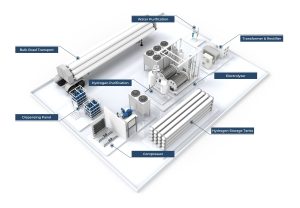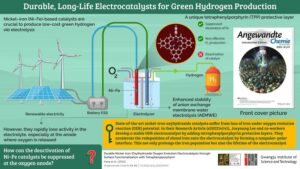The test was conducted in accordance with European standard EN 13555, a recognised methodology for assessing the stress and impermeability of sealing joints under pressure conditions. However, deviating from the standard practice, hydrogen was used as the test gas instead of helium.
The sealing joints were prepared with DN40/PN40 dimensions, with an outer diameter of 92 mm, an inner diameter of 49 mm and thickness of 3 mm. A servo-hydraulic press (TEMESfl.ai1) was used to apply and measure the stress, with loading and unloading cycles to assess the leakage rates. Hydrogen was maintained at 10 bar, and leakage rates were measured at different stress levels: from 2 MPa to 20 MPa for cork&EPDM and from 4 MPa to 40 MPa for cork&NBR.
Seals play a crucial role in sealing hydrogen technologies, as even small leaks can pose significant safety risks and cause operational inefficiencies. The test results confirm the reliability of these materials for storing and transporting hydrogen, underscoring their potential to maintain safety and efficiency in hydrogen-rich environments.
Future tests could expand on these findings by evaluating new materials and testing under varying temperature and pressure conditions, simulating more extreme environments commonly found in industrial hydrogen applications.







